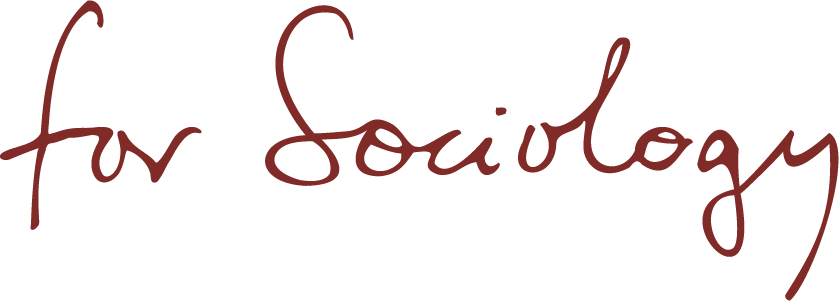How did you get into Sociology?
When I went to Harvard University in 1959-63, I found all sorts of courses that did not exist in secondary school: philosophy, psychology, anthropology, sociology. I tried each of these. First, philosophy; as students we were then interested in existentialism, Heidegger, Sartre, Camus – which we found in the bookstores, since the Harvard philosophy department wanted us to learn logical positivism and British ordinary language philosophy, the only meeting ground being Wittgenstein. After a couple of years, I switched to the Department of Social Relations, which Talcott Parsons had organized to combine sociology, anthropology, political science and social psychology (leaving behaviorism for the psychology department). I read Freud and Jung, and started a project to combine these theories with Piaget’s work on early child development. For graduate school, I went to the Stanford University department of psychology; but here, the cognitive revolution had not yet arrived; I was assigned research in a laboratory on the brains of rats. After a year, I transferred to Berkeley, on the other side of San Francisco Bay, in the department of sociology.
The time was 1964, the outbreak of student movements protesting against racial discrimination in the US, and soon also against the Vietnam War. We took part in demonstrations and Gandhi-style sit-ins at hotels, stores, government buildings, military bases and the UC Berkeley administration building itself. Along with hundreds of others, I was arrested by the police, but on the whole suffered no serious consequences. At this time, I associated with various Marxist factions, but chiefly in the non-violent civil rights movement, and was alienated by the so-called “Maoists” of the time who advocated violence. From Durkheim, I had learned about collective effervescence and solidarity in emotional gatherings, and this fitted well with what I experienced in our protest events. I began to see that Marx, Engels, and Trotsky were full of insights about conflict and revolution, but such analysis was incomplete and could be combined with Weber (who gave a much wider theory of organization and kinds of conflicts) and Durkheim (who explained the conditions for emotional and moral solidarity, including as a weapon of group conflict).
At the same time, in the Berkeley sociology department, Erving Goffman was almost a cult leader, revealing the rituals of everyday life; and Herbert Blumer was formulating symbolic interaction as a theory of volatile social construction. We normally take social institutions for granted as if they were thing-like Realities, but in fact they fall apart if a different kind of reality were enacted – such as bringing the University to a halt in a big demo. I began to plan a synthesis of the new research style of Goffman, Blumer, and the ethnomethodologists (a combination I began to call “micro-sociology”); and all of this together with a Marx/ Weber/ Durkheim synthesis on the macro level. Over the following decades, I worked in this direction, applying it to various historical as well as contemporary researches. The main new additions incorporated later on were analysis of networks; close observations of conversations, emotions and other non-verbal interactions; and most recently, using photos, videos and other first-hand data. In sum, I chose sociology among the human sciences because it includes the most penetrating theories and the most adventurous researchers. Over the years I have attempted to promote the accumulation of knowledge from the best of the past and the present, rather than join one of the many intellectual movements declaring their own method is the only one and everything else is passé.
What makes you sociologically curious?
Both the past and the present. Durkheim said “history is our micro-scope,” by which he meant comparing historical differences is an instrument for bringing unseen patterns into view. For example, we now understand how the political protest movement was invented in the late 18th century; and has expanded as new means of mobilization developed (most recently the Internet); expanding also to find new targets for protest (racial, sexual/erotic, counter-cultures, conservative nostalgia movements, etc.). We have learned that movements do not follow a historical trend only to the Left but also to the Right and in many other dimensions. We live in a time when there is a proliferation of movements of all kinds; and the digital world is breaking collective consciousness into many fragments of mutually exclusive realities. I try to avoid being pessimistic or optimistic. We need to look as objectively as we can (i.e. against the pull of whatever preconceptions we have acquired) to understand the social processes at work.
Sociological insights happen everywhere; in reading the newspaper, or in walking on the streets. Being a sociologist means never having to be bored.
What challenges does sociology face as a science?
One danger is being too enclosed in a particular social movement. If we see everything through the slogans of our own movement, we have frozen ourselves intellectually. Movements tend to focus everything down to one variable; they become descriptive rather than theoretical. This has happened to a considerable degree in American sociology recently. But if one meta-theoretical generalization is surely true, it is that the world is multi-causal. We need to be able to navigate this multi-causality. Weber is the paragon here, although we have gone beyond the particulars of his theories in many respects.
Another difficulty is research methods. Mainstream sociology, but also economics, political science, and public policy generally, are dominated by statistical methods. Some statistics are quite naive, such as the single-variable charts cited in the news or quoted by politicians. In the journals, statistical research is extremely sophisticated but narrowly technical; it becomes difficult to see the relationship between the real world of social interaction that their data purports to be representing, and the complicated inferences and calculations that are reported at the end of the article. The big breakthroughs in theory, at least in my lifetime, have come not from the statisticians but from historical sociologists (Tilly, Elias, Michael Mann, to mention just a few) or from ethnographers in the Goffman tradition, especially those who magnify their observations by using visual recording devices. The dominant place of statistics in the world of public discourse and well-funded academic research seems to me an old-fashioned conservatism holding onto its privilege; whereas ethnographic sociology of the world as-it-happens is much more up-to-date for the era of the Internet.
Durkheim, struggling to make sociology a recognized field in the French academic system at the turn of the 20th century, said we must make startling discoveries, seeing things from new angles. This remains true in the 21st century, which as in previous history, will undergo enormous changes. I am optimistic that sociologists will again be the intellectual leaders in understanding what happens.


